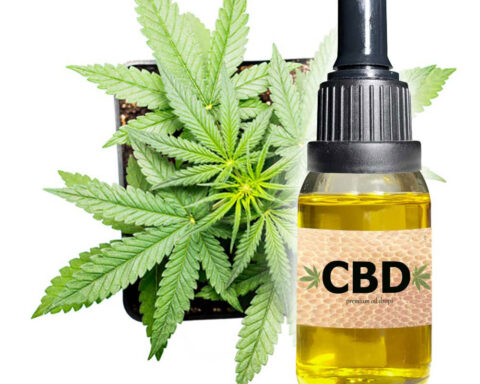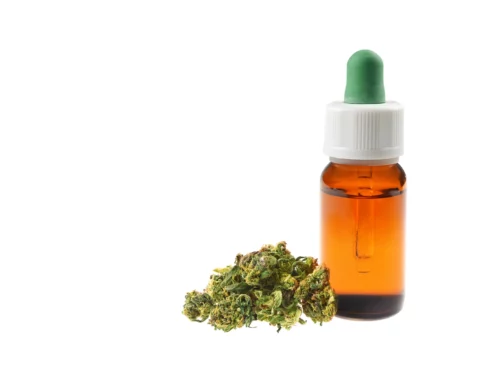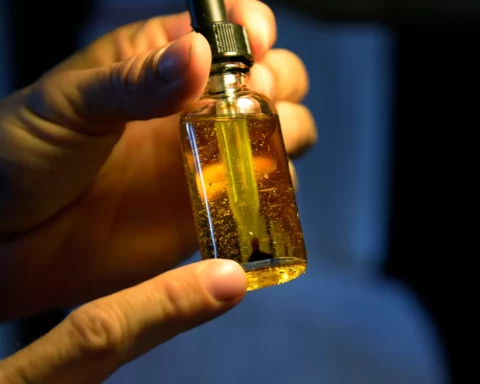The hype of CBD oil helping wellness problems is increasing, although scientific studies do not back the claims or recommend CBD oil for these uses. Closely related to CBD oil, is medical marijuana with THC (delta-9-hydrotetracannabinol), which is a cannabinoid of as much interest as CBD oil. In most wellness and beauty shops and stores that stock supplements, vitamins, and such-like products, CBD oil and THC products won’t be missed. Therefore, many wonder the differences between CBD oil and medical marijuana, and this article sheds light on that.
The Source and Definition CBD Oil vs. Medical Marijuana
One major difference between CBD oil and medical marijuana is the source or where each of these cannabinoids is extracted from and their definitions. CBD oil used to manufacture most CBD products in shops and stores is extracted from the hemp plant. Different CBD brands employ different extraction methods for this role, with ethanol and CO2 extraction methods being the most common methods. While the two are both popular, the latter is more preferred for its perceived safety and efficiency. Unlike ethanol extraction, it does not unnecessarily attach solvents that would be harmful to the extract surfaces. In Contrast, THC is extracted from marijuana. Medical marijuana encapsulates all cannabinoids, including THC and CBD oil, and their derivatives from cannabis sativa plants.
The Chemical Structure of CBD Oil and THC
Another major difference between THC and CBD oil comes from their chemical structures. Both THC and CBD cannabinoids have the same number of carbons, hydrogen, and oxygen. The two cannabinoids have 21 carbon, 30 hydrogen, and 2 oxygen atoms. The difference is in their structure, that is, how these atoms are arranged to form THC and CBD oil molecules. The very arrangement of molecules is the cause or source or the effect variation witnessed in THC and CBD oil products.
The Psychoactive Effects of CBD Oil and Medical Marijuana
The psychoactive effects are also different with regards to THC and CBD oil. CBD oil does not render psychoactive effects on the partaker and does not make a person high. THC( a major compound in medical marijuana) has the ‘high’ effect and renders psychoactive bearing on the partaker. This is because THC binds more strongly to the endocannabinoid receptors (CB1), resulting in the ‘high’ effects. It is also suggested that THC binds together with all the CB1 receptors it comes across, rendering the high effect. On the contrary, the molecular structure (how the carbon, hydrogen, and oxygen atoms are arranged) in CBD oil binds the cannabinoid with endocannabinoid receptors, but less strongly. Therefore, this reduces psychoactive effects when one takes CBD oil products.
Uses of CBD Oil and Medical Marijuana
While CBD oil has popularized in hype more than medical marijuana, the two are used for various problems but in different contexts. Some medical claims on the potential of these cannabinoids may be the same across the board, but some are specific to THC or CBD oil. For instance, CBD oil is claimed to help with just about anything, including pain, insomnia, epilepsy, seizure, stress, multiple sclerosis, arthritis, down syndrome, joint pain, sleep issues, and more. On the other hand, THC and medical marijuana are used by people who claim but have not scientifically proven that they might help with pain, glaucoma, insomnia, and appetite. While these claims sound good or promising, especially because they denote issues that affect us today, no scientific studies have confirmed that they are true.
The FDA has approved Epidiolex, a drug infused with CBD, to help people manage two rare forms of epilepsy. However, the efficacy and effectiveness of Epidiolex for epilepsy are yet to be determined. Other than epilepsy, CBD oil or THC have not been approved for all other conditions they are claimed to help with. Many knowledge gaps surround CBD oil (and THC), and what we don’t know about the two cannabinoids outweigh what we know.
The Legality of CBD Oil and Medical Marijuana
When consuming medical marijuana or CBD products in any state, establish the legality of the cannabinoid or its products per the local laws. In 2018, the Farm Bill was passed, legalizing the medical use of CBD oil and hemp with less than 0.3% THC at federal levels. The two were removed from the list of controlled drugs per the Controlled Substances Act. However, the FDA technically considers CBD a Schedule I drug. Contrarily, medical cannabis (or marijuana) is considered illegal, which is why CBD products have less than 0.3% of THC. Although some states have legalized the recreational use of medical cannabis and THC, most states consider the two illegal, and could even lead to arrest by authorities. Nevertheless, state laws vary widely with THC and CBD oil, so establish what the state says before trying either cannabinoid.
The Side Effects of CBD Oil and Medical Marijuana
There are slight differences in medical cannabis and CBD oil and their side effects. While it is generally considered that CBD oil is safe, some patients have reported some effects, which studies suggest, could come from CBD-medication drug interaction. The user might experience dizziness, diarrhea, weight loss, and appetite changes with CBD oil and its products. On the other hand, THC and medical cannabis are reported to result in dry mouth, red eyes, increased heart rates, low coordination, and low reaction times, which are not fatal but unpleasant.
Conclusion CBD oil and medical cannabis are two compounds of scientific concerns. While shops and stores stock these products, some people cannot differentiate the two. This article sets out to discuss the differences between medical cannabis and CBD oil. CBD oil is one of the derivatives in the cannabis sativa plant and hemp plant, which also have the psychoactive THC. The main line of difference is the psychoactive effect, where CBD oil does not have the ‘high’ effect linked to THC. This could be due to the difference in the atomic arrangement in the molecules of the two cannabinoids, also resulting in different side effects. Moreso, the legality of medical cannabis and CBD oil differs, with CBD oil (whose THC concentration is less than 0.3%) being federally legal while medical marijuana remains largely illegal.
- Missionary Position – Least Likely To Bring You To Climax - April 7, 2023
- Vibrators could put you in Jail - March 31, 2023
- Ball Gag Bondage - March 29, 2023









